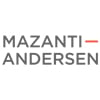-
What are the key rules/laws relevant to M&A and who are the key regulatory authorities?
Key rules/laws
- Belgian Companies and Associations Code (BCAC), especially its Chapter 12 which provides the legal regime on mergers (by acquisition and/or by incorporation of a newco), demergers (by acquisition and/or by incorporation of a newco), other specific corporate restructuring operations (assimilated to mergers or demergers (e.g., partial demerger)), and contributions or transfers of a universality or branch of activity. Moreover, the BCAC also contains general provisions (e.g. incorporation) as well as specific provisions for each company type (e.g. on decision making and on transferability of shares). Finally, the BCAC includes specific rules regarding the respective powers of the company’s shareholders and board of directors when a public takeover bid is launched on the company’s securities.
- The Belgian Civil Code – each (share or asset) purchase agreement is subject to general Belgian contract law provisions. For agreements entered into prior to 1 January 2023, the “old” Belgian Civil Code still applies. Agreements entered into after said date, are subject to the “new” Belgian Civil Code, and more specifically Book 1 (General provisions) and Book 5 (Obligations), as these books entered into force on 1 January 2023. Articles 1582 and following of the (old) Belgian Civil Code (applicable on sale agreements) remain applicable in the context of sale agreements, until the entry into force of Book 7 (Special agreements) of the (new) Belgian Civil Code, for which no legislative texts have been approved today. On 1 January 2025, Book 6 of the (new) Belgian Civil Code entered into force, allowing for non-contractual claims to be instituted in contractual matters, unless this has explicitly been excluded in the contract.
- Belgian Code of Economic Law – merger control and antitrust rules are provided for in Book VI of the Belgian Code of Economic Law. Moreover, the Belgian Code of Economic Law also contains contractual limitations in a B2B relation, which must be considered in M&A context as well.
- Foreign direct investment control: on 1 July 2023, the Belgian foreign direct investment (FDI) screening regime at federal level entered into force. The FDI screening regime applies to any foreign direct investment that could have consequences for Belgian security or public order, or the Belgian Communities and Regions’ strategic interests, including (i) the continuity of vital processes, (ii) safeguarding strategically sensitive knowledge from falling into foreign hands, and (iii) strategic independence. Direct and indirect acquisitions of at least 25% of the voting rights in, or control over entities established in Belgium active in certain critical sectors (including vital infrastructure, essential security resources, critical inputs, access to sensitive information, the private security sector, media freedom and plurality, and strategic technologies in the biotechnology sector (the latter including a supplementary EUR 25 million turnover threshold)) are subject to a mandatory and suspensory ex ante filing obligation with the Interfederal Screening Commission (ISC). A lower threshold of 10% applies to entities active in defence (including dual-use products), energy, cybersecurity, electronic communication or digital infrastructure, and having a turnover exceeding EUR 100 million. In the Flanders region, an ex-post FDI screening regime pertaining to foreign investment in Flemish government institutions that could threaten strategic interests or strategic independence of the Flemish Region or Community has already been in place since January 2019. This regional FDI regime continues to exist in parallel to the federal one.
- The act of 18 September 2017 (UBO Act) and Royal Decree of 31 October 2018 (UBO Decree) provides for the creation of a centralized register of ultimate beneficial owners.
- For publicly traded companies, the following specific key regulation shall apply which include, amongst others:
- The act of 2 August 2002 on the supervision of the financial sector and on financial services;
- The Royal Decree of 26 September 2006 on the register of eligible investors and on the modification of the concept of eligible investors;
- The act of 1 April 2007 on public takeover bids (as amended from time to time) (the Public Takeover Act), the Royal Decrees of 27 April 2007 on takeover bids and squeeze-out bids, and the act of 2 May 2007 on the disclosure of significant holdings in issuers whose shares are admitted to trading on a regulated market;
- The Royal Decree of 17 May 2007 on primary market practices;
- The Royal Decree of 14 November 2007 on obligations of issuers of financial instruments that are admitted to trading on a regulated market (the Transparency Decree);
- The Royal Decree of 14 February 2008 on the disclosure of significant shareholdings;
- The Royal Decree of 25 April 2014 on certain information requirements regarding the marketing of financial products to retail clients;
- The act of 21 November 2017 on the infrastructures for the markets for financial instruments and implementing Directive 2014/65/EU;
- The act of 11 July 2018 on the public offer of financial instruments and the admission of financial instruments to trading on a regulated market (Prospectus Act) and Regulation (EU) 2017/1129 of 14 June 2017 on the prospectus to be published when securities are offered to the public or admitted to trading on a regulated market, and repealing Directive 2003/71/EC (Prospectus Regulation); and
- The act of 28 April 2020, implementing the Shareholders’ Rights Directive II (EU 2017/828).
Key regulatory authorities
In Belgium there are three key regulatory authorities:
- The National Bank of Belgium (NBB) for M&A involving companies in the financial sectors;
- The Financial Services and Markets Authority (FSMA), in the event of public M&A or M&A involving a publicly traded company;
- The Belgian Competition Authority (BCA), amongst others responsible for the enforcement of the competition aspects to M&A; and
- The Belgian Interfederal Screening Commission (ISC), in the event of foreign direct investment.
-
What is the current state of the market?
Whilst the Belgian M&A market had a rough year in 2023 with a decrease of the number of transactions, Q1 2024 showed early signs of a gradual recovery, recording a total of 135 transactions. The positive trend continued into Q2 2024, which saw an 11% increase in trading volumes (150 transactions recorded). It should be stressed, however, that while this improvement is encouraging, it is still a long way from the anticipated full recovery of the Belgian M&A market.(Allyum’s Belgian M&A report for Q2 2024)
In general, the Flemish region remains the most dominant in the Belgian M&A market, with more than half of the Belgian transactions relating to a target located in that part of the country (Allyum’s Belgian M&A report for Q2 2024).
The overall deal value of the Belgian M&A market amounted to EUR 24 billion in 2024, and therefore decreased compared to 2023 (-25%). Whilst the biggest deal of 2024 amounted to a total of EUR 2.24 billion, medium-sized transactions (typically ranging from EUR 100 million to 500 million) continue to be the core of the Belgian M&A market (De Tijd).
Despite the geopolitical situation, the outlook for 2025 remains positive, driven by the significant amount of dry powder held by private equity players and the need to deploy capital, thus creating new opportunities in the market. (MandA.be; Ansarada M&A Outlook Report 2025).
-
Which market sectors have been particularly active recently?
The IT and software sector remains the best performing sector as in the past years, along with healthcare and biotech sector.
Besides the IT sector and healthcare sector, the industrial sector remains a well performing sector in the Belgian M&A landscape, yet with a noticeable shift towards renewable energies. (Allyum’s Belgian M&A report for Q2 2024)
-
What do you believe will be the three most significant factors influencing M&A activity over the next 2 years?
Most importantly, the geopolitical situation, especially with respect to the war in Ukraine, the Middle East and China, together with all ancillary factors (e.g., increase and instability of energy and commodity prices, uncertain economic environment, increase of interest rates, (inter)national sanctions, etc.) will continue playing an important role.
The new Trump Administration (in particular the possibility of a trade-war resulting from the introduction of new trade tariffs on EU goods and services) will create uncertainty in the short and medium term on the M&A activity.
Lastly, we expect that the “energy-shift” and the growing importance of ESG factors to continue having a significant impact on future M&A activity.
-
What are the key means of effecting the acquisition of a publicly traded company?
The acquisition of a publicly traded company is usually conducted by means of (voluntarily or mandatory) public takeover bid, with tender offer in consideration of cash (in whole or in part) or securities (in whole or in part). The mandatory rules provided in the Public Takeover Act shall apply.
Alternatively, the acquisition of a Belgian publicly traded company could be conducted through a merger. In such case, the mandatory rules, provided in the BCAC, shall apply.
-
What information relating to a target company is publicly available and to what extent is a target company obliged to disclose diligence related information to a potential acquirer?
Belgian legislation provides an obligation on Belgian companies to make public, amongst others, following information:
- The company’s incorporation deed and articles of association, as well as any amendment thereof;
- An excerpt of the resolutions in relation to the appointment of directors, members of the supervisory or management board, auditors, and liquidators;
- An excerpt of the resolutions of the governing body or general meeting in relation to certain specific decisions (e.g., issuance of new securities, company restructurings (e.g. (de)mergers), etc.);
- The annual accounts and, as the case may be, consolidated annual accounts (including, amongst others, the annual result allocation):
- The annual report (including, amongst others, information on certain specific transactions of members of the governing bod(y)(ies) of the company, sustainability information (as from 2025) and, for publicly traded companies, a governance statement and remuneration report) and, as the case may be, the consolidated annual report;
- Certain specific special reports of the governing bod(y)(ies) of the company;
- Shareholder transparency disclosures (cf. infra);
- Certain general company information (e.g. address, name, company number, registered activities, etc.), as available on the central enterprise register;
- Information on intellectual property rights of the company;
- Information on owned real estate;
- Specific regulatory information (information on permits, etc.); and
- Prospectuses in relation to the company.
Furthermore, the BCAC also provides for specific disclosure obligations for Belgian branches of foreign companies, providing an obligation to disclose, amongst others, the incorporation deed and articles of association of the foreign company, an excerpt of the foreign company register, the address of the foreign company and the identity of the persons competent to represent the foreign company and/or the Belgian branch, as well as any amendment to these documents. Besides, there is also an obligation to disclose the annual accounts of the foreign company, the bankruptcy or dissolution of the foreign company as well as the closure of the Belgian branch. Part of this information shall be made available in the annexes of the Belgian official journal, while other information will be available at the registry office of the competent commercial court.
In addition, a publicly traded company shall also be subject to the Market Abuse Regulation (MAR) (as recently amended by the EU Listing Act, which entered into force on 4 December 2024, but with many provisions being subject to deferred application) which provides a general obligation to disclose, as soon as possible (notwithstanding exceptions) and in accordance with the provisions of the MAR, any inside information (as defined in the MAR). Lastly, a publicly traded company must respect the periodic disclosure requirements under the Transparency Decree.
It is noteworthy that shareholding of non-listed companies is not public (see below on shareholding of publicly traded companies). Whereas previously anyone with a Belgian e-ID card could in principle access the UBO register and assess the name and type of UBOs with respect to a company, this has changed further to the European Court of Justice’s decision of 22 November 2022, in which the court established a serious violation of the right to private life and protection of personal data with respect to the public access to UBO registers. From now on, the UBO register is only accessible for persons who can demonstrate a legitimate interest.
-
To what level of detail is due diligence customarily undertaken?
Especially in transactions in relation to non-publicly traded companies, it is very customary to conduct a thorough due diligence in relation to legal, financial, tax and business-specific (e.g., environmental) matters. However, descriptive due diligence reports are rather uncommon these days – in most M&A transactions a materiality threshold applies, and only red flags are covered in the due diligence report.
Furthermore, with a growing number of transactions being accompanied by a W&I insurance in Belgium, due diligence becomes even more important, as W&I insurers require a customary level of detail in the due diligence exercises conducted by a potential buyer.
-
What are the key decision-making bodies within a target company and what approval rights do shareholders have?
Unless the articles of association of a company state otherwise, the governing body of the company has the power to carry out all acts necessary or useful to achieve the object of the company, save for the powers reserved to the general meeting by law.
Depending on the structuring of the M&A transaction, key-decision-making organs of the target differ:
- In case of a private share deal, the (individual) shareholder(s) of the target shall decide upon the sale of their stake in the target. In principle, the governing body shall not have any right to intervene;
- In case of an asset deal, the governing body of the target is in principle competent to decide upon a sale of assets (and liabilities) (see below);
- In case of a restructuring pursuant to Chapter 12 of the BCAC, the general meeting is entitled to decide upon such restructurings, except for the transfer or the contribution of a branch of activity in which case the directors are competent; and
- In case of a public bid, the competent body shall be either the board or the shareholders meeting, depending on the “defensive” nature of the decision to be approved.
The act of 27 March 2024 introduced a new article 7:151/1 in the BCAC, requiring the approval of the shareholders’ meeting in case of transfer of at least 75% of its total assets by a Belgian listed company. This requirement also applies to the (non-listed) subsidiaries of a Belgian listed company, which cannot transfer assets with a value exceeding 75% of the total assets of the listed company, without the approval of the shareholders’ meeting of the listed company. The 75% threshold must be assessed in relation to the most recently published annual accounts of the listed company. If the listed company publishes consolidated accounts, the threshold must also be calculated on the basis of the consolidated assets. All asset transfers by the listed company and its (non-listed) subsidiaries carried out in the past twelve months, and which were not approved by the shareholders meeting of the listed company must be added to the contemplated transfer to determine whether the 75% threshold is met or exceeded, without any de minimis threshold.
-
What are the duties of the directors and controlling shareholders of a target company?
The duties of a director are governed by Belgian law and, as the case may be, the articles of association of the company.
In general, the directors are responsible for the management of the company’s business, including the general management of the company, setting its strategy and the representation of the company vis-à-vis third parties. Directors shall act with reasonable care and diligence, while considering their duty of confidentiality and the interest of the company (vennootschapsbelang / intérêt de la société).
Moreover, specific obligations are imposed on the directors with regard to some M&A transactions. The corporate restructuring procedures set out in Chapter 12 of the BCAC (see above) includes, for example, an obligation to draft special reports and/or proposals.
For publicly traded companies, the Public Takeover Act imposes some additional duties on the (competent) governing body of the target, e.g., during the drafting of the prospectus, this body can intervene twice:
- First, after having received the draft prospectus from the FSMA, the (competent) governing body must verify such draft on omissions or misleading information, if any, in a preliminary declaration; and
- Secondly, after having received the approved prospectus from the FSMA, they must submit a memorandum in response, covering amongst others (i) any comments on the prospectus, (ii) statutory clauses which impact the transferability of the securities holding voting rights; (iii) an opinion on the offer, which shall elaborate upon (A) the consequences of the offer (taking into account the interests of the various company stakeholders), (B) their opinion on the strategic plans of the bidder and the expected consequences for the company results as well as the employment and the locations of the target and (C) their opinion on the opportunity of the securityholders to sell their securities, (iv) the number of securities held by directors and the persons which they represent, together with the position these will take as to the bid, and (v) an explanation on the approval clauses.
Notwithstanding the foregoing, Belgian law does not impose specific duties upon a controlling shareholder in connection with M&A transactions.
-
Do employees/other stakeholders have any specific approval, consultation or other rights?
The rights of employees depend on the nature of the target company and on the type of company transaction. In Belgium, there is no co-determination (mitbestimmung) as in some other jurisdictions.
At company-level, employees can be represented by a trade union delegation, a health and safety committee and/or a works council. Subject to lower thresholds determined at sector-level, trade union delegations must be established upon initiative of the trade union organisation by employers with at least 50 employees. Health and safety committees and works councils must be established by employers with at least respectively 50 and 100 employees on average and depending on the outcome of social elections which have to be organised every four years (next social elections to be held in 2028) if the aforementioned threshold is met.
In both asset and share deals, as well as for the restructuring procedures set out in Chapter 12 of the BCAC, the employees’ representatives in the target’s works council have the right to be informed and consulted. In addition, if, as a result of a cross-border restructuring between companies where national law provides for employee participation (i.e., the right for employees to appoint some of the company’s directors), a Belgian company is established (where national law does not provide such employee participation regime), a written agreement must be drawn up with the employee representatives regarding the employee participation that will apply in the newly established Belgian company. With respect to share deals, no consultation shall be required if no impact on employment is anticipated. Absent any works council, the employee representatives in the trade union delegation or, absent any trade union delegation, health and safety committee must be informed and consulted. Consultation means that the employee representatives must have the possibility to raise questions and concerns and to engage in a debate. There is however no requirement to obtain the employee representatives’ approval or formal advice and employee representatives do not have a right of veto in the context of corporate transactions.
Absent any employee representative bodies, there are in principle no information and/or consultation obligations, except in the context of public M&A transactions (see below) or where the contemplated corporate transaction qualifies as a transfer of undertaking (a so-called TUPE transfer). In the latter case, the individual employees shall have the right to be informed (however not consulted) directly.
Since 1 February 2025, employee representatives in the works council (or, absent any works council, in the trade union delegation, or if there is no trade union delegation either, in the health and safety committee) are in the context of transfers of undertaking (so-called TUPE transfers) also entitled to request the transferor to:
- share with the transferee the content of the information and consultation process that is conducted in relation to the envisaged transfer of undertaking; and
- invite the transferee to introduce itself to the employee representatives during that information and consultation process.
Absent any employee representative bodies, the above requests can be made by the transferor’s individual employees.
Depending on the type of transaction and depending on concrete circumstances, the purchaser’s employee representative bodies may also have to be informed and/or consulted.
Additional obligations apply in public M&A transactions. In the context of such transactions, the competent employee representatives (or absent any employee representative bodies, the individual employees directly) of both the target and the bidder must be informed as soon as the takeover bid is made public. As far as the competent employee representative bodies of the bidder are concerned, the information must be provided shortly before publication of the press release by the FSMA. Moreover, the competent employee representatives (or absent any employee representative bodies, the individual employees directly) of both the target and the bidder shall be informed when the prospectus is made public, and the competent employee representatives (or absent any employee representative bodies, the individual employees directly) of the target shall be informed about the content of the opinion of the directors of the target. When the target has a works council, the works council of the target may consult the directors of the bidder, regarding the financial and industrial background of the bidder as well as the repercussions the public offer may have on the employment and activities of the target (this goes beyond EU Takeover Bids Directive).
Moreover, the Belgian national CLA no. 32 bis (implementation of Directive 2001/23/EC) must be considered. CLA no. 32 bis contains a protection mechanism in favour of all employees assigned to the transferred assets on the condition that the transferred assets constitute an economic entity / business (a so-called TUPE transfer). Employees that are assigned to the transferred business are automatically transferred to the transferee at the same time as the business is transferred, and their terms and conditions of employment shall be continued and they cannot be dismissed because of the TUPE transfer, except for gross misconduct or for economic, technical, or organisational reasons.
M&A transaction might require the prior approval of a regulatory authorities. For example, depending on the size of the involved companies, some transactions may require prior clearance from the competition authorities. For the financial services sector, some additional regulatory approvals may be necessary (for example, clearance from the National Bank of Belgium for takeovers of banks or insurance companies).
-
To what degree is conditionality an accepted market feature on acquisitions?
In Belgium, conditionality is an accepted market feature, especially for large and mid-market transactions. Examples of conditions precedent are obtaining merger approval, other regulatory approvals (e.g. FDI clearance or FSMA nihil obstat), change of control approvals, waiver of rights of first refusal and even, although less common, obtaining financing.
In public M&A transactions, more restricted rules apply. The bidder is allowed to make the takeover bid subject to merger control clearance. Any other conditions (such as a minimum acceptance level of the bid, absence of a material adverse change) shall be subject to prior approval by the FSMA.
Lastly, a mandatory takeover bid can, as a matter of law, not be made conditional (save statutory conditions, such as merger control clearance).
-
What steps can an acquirer of a target company take to secure deal exclusivity?
Exclusivity arrangements are common in Belgium and are mostly included in the letter of intent (countersigned for approval by the seller) and often include a sanction mechanism (such as liquidated damages).
-
What other deal protection and costs coverage mechanisms are most frequently used by acquirers?
Although not very common in Belgium, other deal protection mechanisms could either be pecuniary or contractual.
Pecuniary deal certainty mechanisms concern break-up fee provisions, providing that a determined (or determinable) amount is payable to the potential buyer if the deal does not succeed or (in an auction process) those bidders that did not prevail in the auction process. Although not very common, this mechanism operates as an incentive for potential acquirers to allocate sufficient means to deal preparation (including due diligence).
Contractual deal certainty mechanisms (other than exclusivity provisions) might entail matching rights, allowing other buyers to re-issue their bid and match the then prevailing offer. These mechanisms are very rare though.
Moreover, Belgian civil law contains an obligation to conduct negotiations at all times in good faith, a breach of which is sanctioned with pre-contractual liability (culpa in contrahendo). In the event of wrongful termination of the negotiations by the seller, the acquirer must be put back in the same situation as if no negotiations had taken place (and, if there was a legitimate expectation that the agreement would undoubtedly be entered into, the seller might also be required to indemnify the acquirer for the loss of the net benefits expected from such agreement), and vice versa.
-
Which forms of consideration are most commonly used?
Belgian legislation does not provide for any limitation on what a buyer can offer as consideration. The consideration can either be payable in cash or in securities.
In transaction in relation to private companies, the consideration is usually fully in cash, whereas, in transactions in relation to publicly traded companies we more often see that (part of) the consideration is paid in securities.
Additionally, in transactions in relation to private companies, deferred price mechanisms, earn-out arrangements based on post-closing performance of the company (e.g. on the basis of future EBITDA) and escrow arrangements for specific duration, are also common.
-
At what ownership levels by an acquirer is public disclosure required (whether acquiring a target company as a whole or a minority stake)?
In principle, any physical or legal person, directly or indirectly, acquiring shares in a publicly traded company is obliged to notify the FSMA and the relevant company if, as a consequence of such acquisition, it holds more than 5% of the voting rights of such company. Subsequent notifications are obliged if, further to a direct or indirect acquisition, such shareholder holds more than 10%, 15%, 20% and every multiple of 5% of the voting rights of the company. A similar obligation exists if such shareholder directly or indirectly transfers shares and, as a consequence of such transfer, its participation falls below one of the above thresholds. Do note that similar notification requirements are applicable to securities acquired on the Euronext Growth, but other thresholds apply. The threshold of 5%, 10%, 15%, 20% and every multiple of 5%, shall be replaced by thresholds of 25%, 30%, 50%, 75% and 95%.
Additionally, the articles of association of the publicly traded company could provide for additional thresholds at 1%, 2%, 3%, 4% and 7.5%.
Furthermore, similar disclosure obligations exist in case of an IPO, passive exceeding (or falling below of) the threshold and the entering into, amending or terminating an agreement by which two or more shareholders agree to act in concert in relation their shareholding.
-
At what stage of negotiation is public disclosure required or customary?
In transactions in relation private companies, negotiations are usually conducted confidentially, and public disclosure (if any) only occurs upon signing or closing, as the case may be, of the transaction (in accordance with the terms of the underlying transfer agreement).
Negotiations relating to a transaction in relation to a publicly traded company could constitute inside information and therefore require immediate disclosure (notwithstanding specific exceptions) in accordance with MAR. It should however be noted that the MAR (as amended by the EU Listing Act, which entered into force on 4 December 2024, but with many provisions being subject to deferred application) allows issuers to postpone the publication of inside information provided that certain (cumulative) conditions are met. Additionally, any intention to issue a public takeover bid must be notified to FSMA.
-
Is there any maximum time period for negotiations or due diligence?
Other than the mandatory timeframe provided in the context of public takeover bids (as provided in the Public Takeover Act) or a (de)merger (as provided in the BCAC), no mandatory time periods are provided for negotiations or due diligence in the context of Belgian M&A.
-
Is there any maximum time period between announcement of a transaction and completion of a transaction?
For public takeover bids, there are no specific mandatory timeframe between the announcement of an offer and completion. However, the Royal Decree on Takeover Bids provides for specific timeframes for the acceptance periods of the offer and the payment of the price.
Specific timeframes also apply to (private) (de)mergers, as specified in the BCAC.
-
Are there any circumstances where a minimum price may be set for the shares in a target company?
The price is in principle subject to negotiations of the involved parties.
However, for public M&A transactions, the price is partially regulated:
- No minimum price exists for a voluntary takeover bid, but some provisions can impact pricing: (i) conditions of the offer must be of such nature that they will allow the bidder to achieve the desired result, (ii) consideration must be equal for all shareholders which implies that if, during the bidding period, the bidder or persons acting in concert with the bidder, acquire or undertake to acquire securities of the target outside the offer at a price higher than the offer price, the offer price will be adjusted to that higher price, (iii) for a duration of one year as of the end of the bid period, the bidder or persons acting in concert with the bidder cannot acquire directly or indirectly securities that were the object of the public offer at more favourable terms than those set out in the public offer, except where the price difference is granted to all security holders who have taken part in the bid and (iv) the price of a counter-bid must be at least 5% higher.
- The mandatory takeover bid is subject to a minimum price which equals to the higher of: (i) the highest price paid by the bidder (or any person acting in concert with the bidder) during the period of 12 months preceding the announcement of the takeover bid; and (ii) the weighted average trading price for the relevant securities of the target company on the most liquid market during the last 30 calendar days prior to the moment giving rise to the public takeover bid obligation. The FSMA has the power to allow or require an amendment to the price, including if it appears that, apart from the consideration offered, special, direct or indirect advantages are being granted to certain transferors of the securities.
- Additionally, for bids by a controlling shareholder, the consideration offered must be reviewed by an independent expert who will be appointed by the target’s independent directors. If the target did not appoint independent directors, the governing body of the target will appoint such expert, subject to the approval of the FSMA. The independent expert must evaluate whether the consideration is fair in comparison to a bid in a competitive market.
-
Is it possible for target companies to provide financial assistance?
The BCAC provides that a target may only make advances, grant loans or provide security for the purpose of acquiring its own shares, if certain conditions are complied with. Financial assistance is authorised, but subject to the following (stringent) formal and substantive conditions:
- Firstly, the transaction must take place under the responsibility of the directors of the Belgian company and at fair market conditions (regarding interest payment, securities and creditworthiness of the companies involved).
- Secondly, the transaction must be authorized by a prior resolution of the general meeting of shareholders in which shareholders representing 50% of the capital must be present and the decision must be taken by a majority of 75%.
- Thirdly, the amount of the loan or the advance must be capable of distribution on the basis of the so-called net asset test.
- A report must be issued to the shareholders and filed with the registrar of the competent enterprise court.
Because of the above requirements, it is rather exceptional to see financial assistance in the Belgian market, it being understood that these requirements only apply to the direct target and not to the target’s subsidiaries, which are not restricted to advance funds or loans for the acquisition of the target.
-
Which governing law is customarily used on acquisitions?
If the target company is a Belgian company, share deals are mostly governed by Belgian law. That said, it is not excluded to make the share purchase agreement (SPA) subject to a foreign law as long as the requirements imposed by Belgian law to make the transfer opposable against third parties are complied with.
-
What public-facing documentation must a buyer produce in connection with the acquisition of a listed company?
The contemplated acquisition of a listed company comes along with several disclosure obligations for the potential acquirer or the bidder.
Every intention to make a public takeover bid must be notified to the FSMA, who will disclose such notification to the public and, especially, the target company. Together with its intention to make a public offer, the potential acquirer shall also deposit a draft prospectus, which shall include the information listed in the annexes to the royal decree of 27 April 2007 on public takeover bids.
Upon request of the FSMA, all parties concerned by the bid shall provide the FSMA with all agreements that could have a material impact on the bid. Any pertinent provisions of such agreements require to be published by the FSMA.
During the bid period, the bidder, the target company, the members of the governing body of the target, the persons acting in concert with the bidder and the persons holding (directly or indirectly) more than 1% of the securities in the bidder or the target company, must report to the FSMA all acquisitions and disposals of securities issued by the bidder, the target company or, as the case may be, the company whose securities are used as consideration in the public takeover bid. The FSMA shall publish above information on its website, on a daily basis.
Finally, within 5 business days after termination of the bid period, the bidder shall disclose the results of the bid, together with the number of securities it holds further to the bid.
-
What formalities are required in order to document a transfer of shares, including any local transfer taxes or duties?
The BCAC does not provide for any specific formalities for a share transfer. Hence, a mere agreement (valid under applicable contract law) is sufficient.
In order for the transfer of shares to be enforceable towards third parties (including the company), the transfer must be registered in the share register of the company (or in case the company has dematerialised shares, booked to the relevant securities account).
Transfer of shares does not give rise to any stamp or registration duties.
-
Are hostile acquisitions a common feature?
Hostile takeovers are not common in Belgium. Belgium is known for the concentrated share ownership of companies, implying that the reference shareholder’s prior support will be sought in most cases.
-
What protections do directors of a target company have against a hostile approach?
The most known defensive measures concern an increase of share capital within the limits of the authorized capital (to the extent previously granted by the shareholders meeting), an acquisition of the target’s own shares (to the extent previously granted by the shareholders meeting), selling the target company’s most profitable business units or issuing warrants and/or convertible bonds.
The most important limitation that should be considered are:
- Only the general meeting may grant rights to third parties materially affecting the assets and liabilities of the company or creating a material debt or obligation of the company, when the exercise of these rights depends on the issue of a public takeover bid on the shares of the company or on a change of the control of the company; and
- As from the moment the company receives information from the FSMA that it has been notified of a public takeover bid for the securities of the company and until the end of the bid, only the general meeting may adopt resolutions or carry out transactions resulting in a material change in the composition of the assets or liabilities of the company or enter into obligations for no effective consideration.
-
Are there circumstances where a buyer may have to make a mandatory or compulsory offer for a target company?
The general principle is that a mandatory takeover must be launched when a person, as a result of its own acquisition or the acquisition by persons acting in concert with it, directly or indirectly holds more than 30% of the voting securities in a Belgian publicly traded company (including MTF, where the threshold will generally be 50%). There exists a number of exceptions to the mandatory offer (for example, in the event of an acquisition as a result of a voluntary takeover bid, in the case of transfers between affiliated companies or where a third party controls the target or holds a higher shareholding than the shareholding held by person(s) holding 30% or more of the voting securities).
-
If an acquirer does not obtain full control of a target company, what rights do minority shareholders enjoy?
The minority shareholders of a company enjoy minority rights included in the BCAC. Some of those minority rights are dependent on a minimum shareholding threshold. For example, the initiation of a minority claim against directors on behalf of the company requires that the minority shareholder owns at least 1% of the shares, the right to request that an item be included in the agenda of a shareholders’ meeting (or to submit proposals relating to items on the agenda of a shareholders’ meeting) requires that the minority shareholder holds at least 3% of the capital of a listed company, the right to request the convening of a shareholders’ meeting requires that the minority shareholder holds at least 10% of the capital, etc. Each shareholder holding more than 20% of the voting rights may veto any amendment to the company’s corporate purpose or change of the company’s legal form. With more than 25% of the voting rights, each shareholder may veto any amendment to the company’s articles association (including but not limited to any increase or decrease of the share capital, (de)merger, winding-up, etc.).
Other minority rights apply to each minority stake, for example: right to consult the shareholders’ register, right to participate in shareholders’ meetings, right to investigate the company’s financial situation and annual accounts (in companies where no statutory auditor has been appointed), etc.
Additionally, under certain conditions (see question 27), the minority shareholders of a publicly traded company have a sell-out right vis-à-vis the bidder.
-
Is a mechanism available to compulsorily acquire minority stakes?
Following a takeover bid, there are two possibilities to deal with a remaining minority stake.
Pursuant to the Public Takeover Act, the bidder who holds (alone or in concert with others) 95% of the share capital conferring voting rights and 95% of the voting securities in the target, can launch a squeeze out and force the remaining minority shareholders to sell their voting rights securities. Such squeeze-out bid can be made on a stand-alone basis, or can be part of a (voluntary or mandatory) public takeover bid by a bidder who is able to acquire 95% of the outstanding voting securities via the public takeover bid, in which case, besides the requirement to hold 95% of the voting securities, the bidder must have acquired at least 90% of the share capital conferring voting rights via the acceptance of the takeover bid. The latter condition does not apply in case of an acquisition via a mandatory public takeover bid. In case the conditions are met, the takeover bid will be reopened at the same price during at least 15 business days, and securities that are not offered to the bidder at the expiry of the reopened bid are deemed to be acquired by the bidder. Additionally, under the same conditions, the minority securities holders that did not accept the bid are entitled to sell their securities to the bidder at the same price as the offer price within a period of three months following the expiry of the acceptance period of the bid (sell-out), however such sell-out is uncommon.
For purposes of determining the stake of the bidder in the target, the stake of persons acting in concert with the bidder is also taken into account.
A similar mechanism exists for non-listed companies but with no guarantee to acquire 100% of the voting securities, as the minority securities holders are entitled to refuse the squeeze-out offer.
Belgium: Mergers & Acquisitions
This country-specific Q&A provides an overview of Mergers & Acquisitions laws and regulations applicable in Belgium.
-
What are the key rules/laws relevant to M&A and who are the key regulatory authorities?
-
What is the current state of the market?
-
Which market sectors have been particularly active recently?
-
What do you believe will be the three most significant factors influencing M&A activity over the next 2 years?
-
What are the key means of effecting the acquisition of a publicly traded company?
-
What information relating to a target company is publicly available and to what extent is a target company obliged to disclose diligence related information to a potential acquirer?
-
To what level of detail is due diligence customarily undertaken?
-
What are the key decision-making bodies within a target company and what approval rights do shareholders have?
-
What are the duties of the directors and controlling shareholders of a target company?
-
Do employees/other stakeholders have any specific approval, consultation or other rights?
-
To what degree is conditionality an accepted market feature on acquisitions?
-
What steps can an acquirer of a target company take to secure deal exclusivity?
-
What other deal protection and costs coverage mechanisms are most frequently used by acquirers?
-
Which forms of consideration are most commonly used?
-
At what ownership levels by an acquirer is public disclosure required (whether acquiring a target company as a whole or a minority stake)?
-
At what stage of negotiation is public disclosure required or customary?
-
Is there any maximum time period for negotiations or due diligence?
-
Is there any maximum time period between announcement of a transaction and completion of a transaction?
-
Are there any circumstances where a minimum price may be set for the shares in a target company?
-
Is it possible for target companies to provide financial assistance?
-
Which governing law is customarily used on acquisitions?
-
What public-facing documentation must a buyer produce in connection with the acquisition of a listed company?
-
What formalities are required in order to document a transfer of shares, including any local transfer taxes or duties?
-
Are hostile acquisitions a common feature?
-
What protections do directors of a target company have against a hostile approach?
-
Are there circumstances where a buyer may have to make a mandatory or compulsory offer for a target company?
-
If an acquirer does not obtain full control of a target company, what rights do minority shareholders enjoy?
-
Is a mechanism available to compulsorily acquire minority stakes?





























